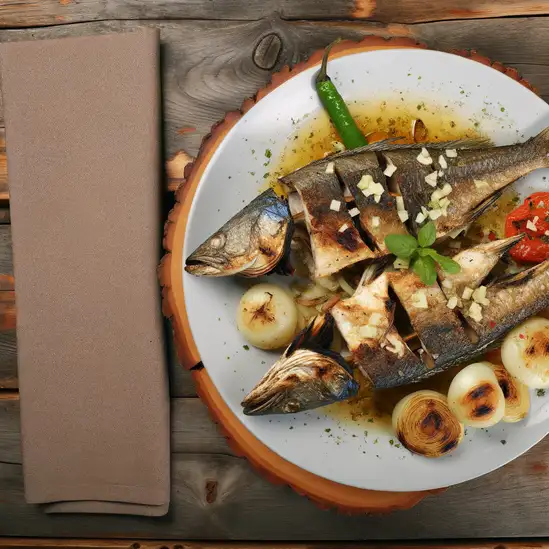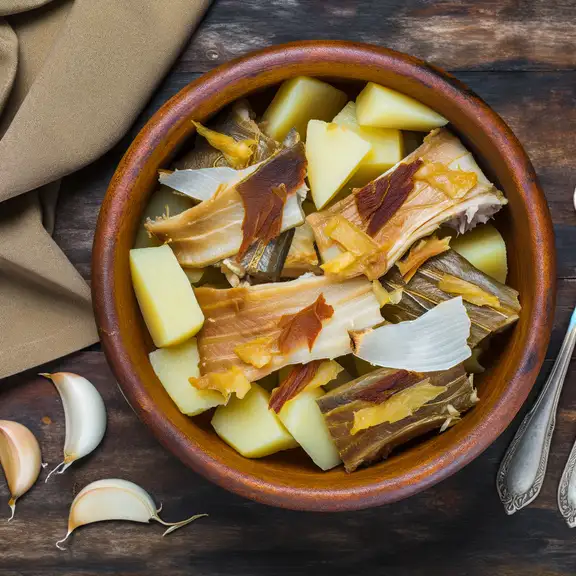



If you ever find yourself wandering the Adriatic coast,Budva is the kind of place that wraps around you like a warm,salty breeze. There’s this effortless charm in the air—ancient stone walls bathed in golden sunlight,narrow cobblestone streets humming with the chatter of locals and the clinking of glasses. As you stroll through the Old Town,you can almost taste the history in the air,mingling with the scent of fresh seafood grilling nearby and the faint hint of pine from the surrounding hills. It’s a place where the past and present dance together,from medieval fortresses overlooking turquoise waters to lively cafes spilling out onto sun-dappled squares. What really sticks with you is the rhythm of life here. Mornings start slow,with the gentle lapping of waves against the shore and the distant call of fishermen setting out to sea. By afternoon,the beaches buzz with laughter and the splash of swimmers,while the aroma of roasted lamb and fresh herbs drifts from family-run konobas. Evenings are magical—lanterns flicker along the marina,and the sound of live music spills from tucked-away bars,inviting you to linger just a little longer. Budva’s spirit is a blend of old-world warmth and vibrant energy. It’s a place where you can lose yourself in winding alleys,savor a glass of local wine as the sun dips below the horizon,and feel utterly alive in the embrace of the Adriatic. Trust me,once you’ve been,you’ll carry a piece of Budva’s soul with you long after you leave.
The information on this page is currently being reviewed by Tripkliq and should be used as a guide only
Eng word: Hello
Eng pronunciation: Zdra-vo
Local language: Zdravo
Eng word: Goodbye
Eng pronunciation: Do-vee-jen-ya
Local language: Doviđenja
Eng word: Thank you
Eng pronunciation: Hvah-lah
Local language: Hvala
Eng word: How much
Eng pronunciation: Ko-lee-ko
Local language: Koliko
Eng word: Toilet
Eng pronunciation: Toh-ah-let
Local language: Toalet
Eng word: Help me
Eng pronunciation: Po-mo-zee mee
Local language: Pomozi mi
Eng word: Yes
Eng pronunciation: Dah
Local language: Da
Eng word: No
Eng pronunciation: Neh
Local language: Ne
Eng word: Excuse me
Eng pronunciation: Eez-vee-nee-teh
Local language: Izvinite
Budva is one of the oldest urban centers in the Adriatic Sea, with evidence suggesting it was founded over 2,500 years ago by the Greeks as a trading post.
The ancient walls of Budva's Old Town date back to the 15th century and were designed to protect the city from invaders. These walls still stand today, encapsulating much of the city's rich history.
A prominent feature of Budva's Old Town, St. John's Church dates back to the 7th century, showcasing the long-standing religious heritage and architectural ingenuity of the city.
A devastating earthquake hit Budva in 1979, leading to the reconstruction of much of the Old Town. This event resulted in a blend of ancient structure and contemporary reconstruction that makes Budva uniquely beautiful.
Perched atop the walls of the Old Town, the Citadel is a testament to Budva's medieval military architecture. It has served various roles over centuries from a fortress to a library.
The Roman Empire left a significant mark on Budva with remnants of Roman architecture, including villas and mosaics, particularly evident in the suburb of Mogren.
According to legend, Budva was named after Buthoe, founded by Cadmus, the exiled prince of Thebes, and his wife Harmonia, who were turned into serpents and fled to this area.
Budva is known for its stunning coastline, featuring 17 beaches spread over 21 km, making it a prime tourist destination for beach lovers and sunseekers.
The bronze statue of a ballet dancer, located on the rocks near the Mogren Beach, has become an iconic symbol of Budva, representing the city's love for art and beauty.
In Budva, the most common Power Adaptor is Type C, Type F.



Grilled fish, typically fresh catch from the Adriatic Sea, seasoned with olive oil, garlic, and herbs.

Cabbage rolls stuffed with minced meat and rice, cooked in a savory tomato sauce.

Salted cod, often prepared with potatoes and served as a traditional dish during festive occasions.

A traditional smoked ham from the nearby Njeguši village, known for its rich flavor and served thinly sliced.

A hearty dish made from cornmeal, often served with cheese and sour cream, popular in the mountainous regions of Montenegro.

A savory pastry filled with cheese, often enjoyed as a snack or appetizer.

A fresh salad made with local vegetables, olives, and sometimes topped with cheese, reflecting the Mediterranean influence.
If you ever find yourself wandering through the sun-drenched streets of Dubrovnik,you’ll immediately feel like you’ve stepped into a living storybook. The city’s ancient stone walls rise proudly against the sparkling Adriatic,and as you stroll along the marble-paved Stradun,the salty sea breeze mingles with the scent of fresh pine and blooming bougainvillea. There’s a rhythm here—a gentle hum of life where history and modern charm dance together effortlessly.
Dubrovnik’s character is woven into every corner:the clatter of café cups,the murmur of locals chatting in cozy taverns,and the distant call of seagulls overhead. You can almost taste the city in the air—briny and fresh,with hints of grilled seafood and ripe figs from the markets. Sitting at a seaside restaurant,watching the sun dip behind the fortress walls,you’ll savor dishes bursting with Mediterranean flavors,paired with a glass of crisp Croatian white wine.
What makes Dubrovnik truly special is how it balances its rich past with a vibrant present. The city’s narrow alleys invite exploration,revealing tucked-away galleries,artisan shops,and lively squares where music spills out into the streets. Whether you’re tracing the footsteps of ancient mariners or simply soaking up the golden light on a quiet terrace,Dubrovnik feels like a warm embrace—inviting,timeless,and utterly unforgettable.
If you ever find yourself wandering the Adriatic coast,Kotor is the kind of place that wraps around you like a warm,familiar hug. Nestled beneath towering limestone cliffs and cradled by the shimmering Bay of Kotor,this medieval town hums with a quiet energy that feels both timeless and alive. As you stroll through its labyrinth of narrow cobblestone streets,you’ll catch the scent of fresh sea salt mingling with the earthy aroma of old stone and blooming jasmine. The sound of church bells ringing softly blends with the distant chatter of locals and the gentle lapping of waves against ancient walls.
Kotor’s charm lies in its layers—each corner reveals a story,from the faded frescoes inside centuries-old churches to the vibrant markets where vendors call out,offering ripe figs,olives,and freshly caught seafood. The city’s Venetian architecture,with its weathered facades and ornate balconies,whispers tales of a rich past,while cozy cafes spill out onto sun-dappled squares,inviting you to sip strong Montenegrin coffee or a glass of local wine.
What really stays with you is the feeling of being somewhere that’s both peaceful and full of life. Whether you’re climbing the fortress walls for a breathtaking view of the bay or simply watching the sunset paint the water in shades of gold and pink,Kotor has a way of making you slow down and soak it all in. It’s a place that lingers in your heart long after you’ve left.
If you ever find yourself wandering through Split,it’s like stepping into a living,breathing storybook where ancient history and vibrant modern life dance together effortlessly. The moment you stroll along the Riva promenade,the salty breeze from the Adriatic mingles with the aroma of fresh espresso and grilled seafood wafting from nearby cafés. Locals chat animatedly in the sun-dappled squares,their laughter blending with the distant hum of boats bobbing gently in the harbor. There’s a laid-back energy here that feels both timeless and alive,inviting you to slow down and soak it all in.
Split’s heart beats strongest in Diocletian’s Palace,a sprawling Roman fortress that’s less a museum and more a neighborhood where people live,shop,and gather. Walking through its ancient stone alleys,you’ll catch glimpses of colorful markets,artisan shops,and cozy taverns tucked into centuries-old walls. At night,the city transforms as lanterns flicker on,and the sound of live klapa singing—traditional a cappella harmonies—drifts through the air,wrapping you in a warm,soulful embrace.
What really makes Split unforgettable is how effortlessly it blends the old with the new. You can savor a plate of fresh octopus salad while watching fishermen haul in their catch,then wander to a rooftop bar for a cocktail as the sun sets behind the islands. It’s a place where every corner tells a story,every meal feels like a celebration,and every moment invites you to become part of its ongoing tale.
If you ever find yourself wandering the Adriatic coast,Tivat in Montenegro is a place that quietly steals your heart without shouting for attention. The moment you step into this coastal town,there’s a gentle hum of life—boats softly clinking against the marina docks,the salty breeze carrying hints of pine and sea,and the distant laughter spilling from waterfront cafés. It’s a place where the pace slows just enough for you to savor the moment,whether you’re sipping a rich espresso or watching the sun melt into the bay’s calm waters.
Tivat’s charm lies in its blend of old-world Mediterranean warmth and a fresh,modern pulse. The town’s compact center invites you to wander through narrow streets lined with pastel buildings,their shutters flung open to catch the light. You’ll catch the scent of freshly baked bread mingling with the aroma of grilled seafood,a reminder that here,food is a celebration of the sea and the land. Locals greet you with genuine smiles,and there’s a sense of community that makes you feel like you’re stepping into a place that’s lived in and loved.
What really sets Tivat apart is its connection to the water. Whether you’re strolling along the marina,watching sleek yachts glide by,or exploring nearby beaches where the water is impossibly clear and cool,there’s a peacefulness that wraps around you. It’s a city that invites you to slow down,breathe deeply,and soak in the simple pleasures—sunlight,sea,and the warmth of genuine hospitality.
Imagine stepping into a place where the air hums with the gentle rhythm of waves lapping against sun-warmed shores,and the scent of blooming bougainvillea mingles with salty sea breeze. That’s Corfu for you—a vibrant island that feels like a sun-drenched daydream wrapped in layers of history and lively culture. Walking through its narrow,cobbled streets,you’ll hear the melodic chatter of locals,the clinking of glasses in cozy tavernas,and the occasional strum of a bouzouki drifting from a corner café. It’s a place where Venetian architecture stands proudly alongside lush olive groves,creating a unique blend of Mediterranean charm and timeless elegance.
Corfu’s character is as rich as its flavors. Picture yourself savoring fresh seafood caught that morning,drizzled with golden olive oil and paired with a glass of crisp local wine,while the sun dips low,painting the sky in shades of coral and lavender. The island’s culture pulses through its festivals,its music,and the warmth of its people,who welcome you like an old friend. Whether you’re wandering through the pastel-hued streets of Corfu Town or exploring quiet beaches where turquoise waters invite you to dive in,there’s a sense of effortless joy and discovery.
What makes Corfu truly special is how it balances relaxation with a spirited energy. It’s not just a place to see but a place to feel—to taste,hear,and breathe in. By the time you leave,you won’t just have memories of stunning views and delicious meals; you’ll carry a little piece of Corfu’s heart with you.
A charming coastal city near the Greek border,Saranda is famous for its beaches,proximity to the UNESCO-listed Butrint ruins,and the nearby Ksamil Islands.
ExploreScammers may install skimming devices on ATMs to steal card information from unsuspecting tourists.
Some beach operators may charge excessive fees for sunbeds and umbrellas, especially in peak season.
Unlicensed exchange offices or individuals may offer poor exchange rates or charge hidden fees.
Scammers pose as parking attendants and charge tourists for parking in free or public spaces.
Vendors may sell low-quality or counterfeit items as authentic Montenegrin souvenirs at inflated prices.
Unlicensed guides may offer tours at high prices but provide little value or inaccurate information.
Some taxi drivers may not use meters or charge inflated prices, especially for tourists unfamiliar with local rates.
Crowded tourist areas, beaches, and public transport are hotspots for pickpockets targeting distracted visitors.
Some restaurants may add extra items or inflate prices on the bill, assuming tourists won't notice.
Tourists may be offered unregistered or non-existent accommodations, often through unofficial channels.
The possession, use, and trafficking of drugs are strictly illegal in Montenegro, including Budva. The country has stringent laws against drug-related offenses, and violations can result in severe penalties, including imprisonment. Tourists should avoid any involvement with illegal drugs to ensure a safe and trouble-free visit.
In Budva, Montenegro, smoking is generally allowed in public places, but there are restrictions. Smoking is prohibited in enclosed public spaces, including restaurants, cafes, and public transportation. Some establishments may have designated smoking areas. It is advisable to look for 'No Smoking' signs and adhere to local regulations to avoid fines.
Vaping in Budva follows similar regulations to smoking. It is generally allowed in public places, but not in enclosed public spaces such as restaurants, cafes, and public transportation. Tourists should be mindful of 'No Vaping' signs and respect local rules to avoid any penalties.
What are other people saying about Budva?
Recent Social posts about Budva
There is nothing to show you for now.